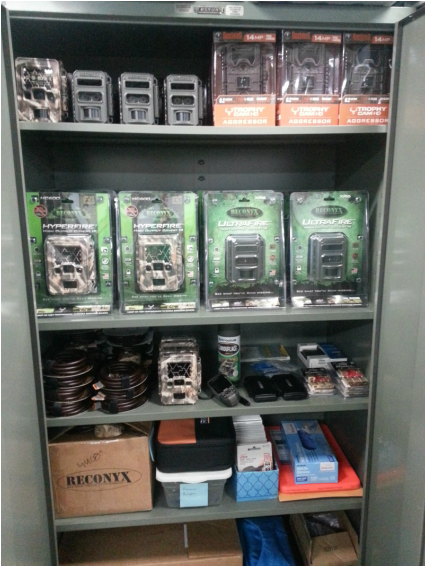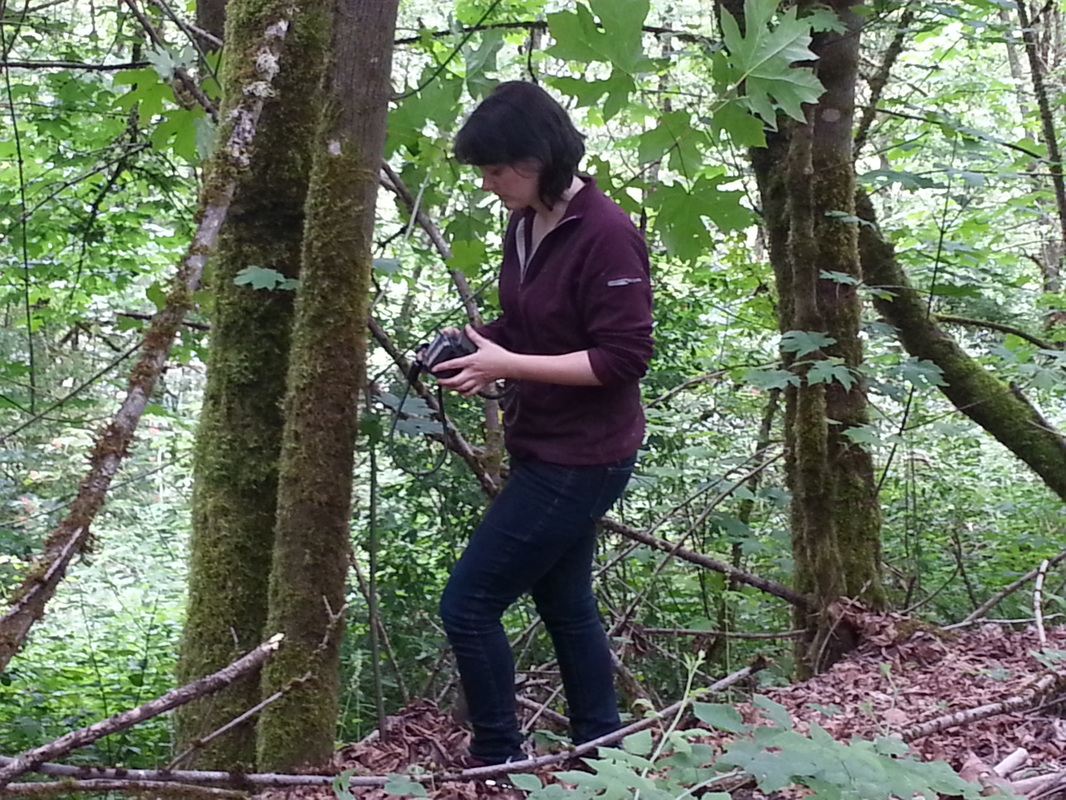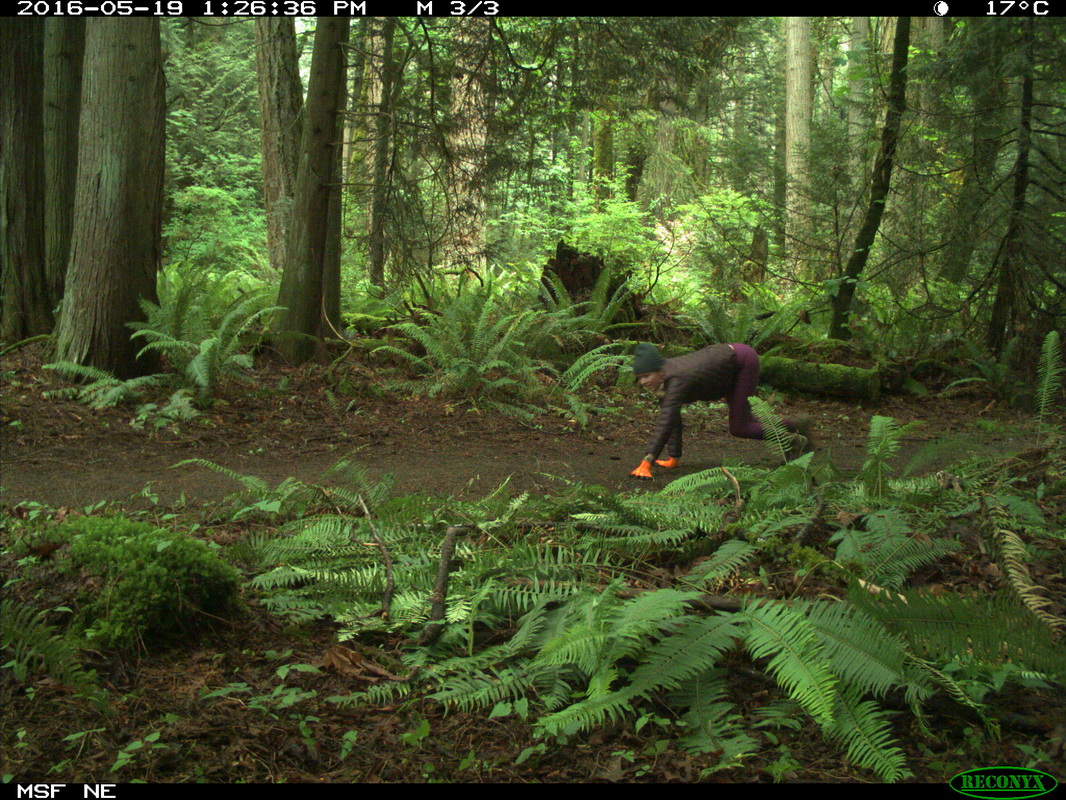By Michael Havrda
Summer is drawing near, and for many research projects that means the start of the field work season is fast approaching. For the last several weeks, we’ve been hard at work getting the Washington Urban-Wildland Carnivore Project ready to transition out of the pilot stage so we can launch our full-scale field study in the next couple of weeks.
One of the tasks that has taken more time than expected was responding to all of the emails we received from members of the public that wanted to participate in our study. On May 11th, we launched a webpage for the Washington Urban-Wildland Carnivore Project on the Woodland Park Zoo’s website. At the same time, Woodland Park Zoo also issued a press release that was covered by news outlets as far away as Spokane. As a result, we received an amazing response from the public – over 200 people wanted to have trail cameras installed on their property! It was very rewarding for us to see how engaged and enthusiastic the community was about wildlife and carnivores in particular.
As you can imagine, a research project as large as the Washington Urban-Wildland Carnivore Project requires a lot of equipment. With close to fifty cameras and all of the associated hardware that comes with them, not to mention tools and supplies for collecting scat samples, we have a lot of items to inventory and double-check before we roll everything out.
Summer is drawing near, and for many research projects that means the start of the field work season is fast approaching. For the last several weeks, we’ve been hard at work getting the Washington Urban-Wildland Carnivore Project ready to transition out of the pilot stage so we can launch our full-scale field study in the next couple of weeks.
One of the tasks that has taken more time than expected was responding to all of the emails we received from members of the public that wanted to participate in our study. On May 11th, we launched a webpage for the Washington Urban-Wildland Carnivore Project on the Woodland Park Zoo’s website. At the same time, Woodland Park Zoo also issued a press release that was covered by news outlets as far away as Spokane. As a result, we received an amazing response from the public – over 200 people wanted to have trail cameras installed on their property! It was very rewarding for us to see how engaged and enthusiastic the community was about wildlife and carnivores in particular.
As you can imagine, a research project as large as the Washington Urban-Wildland Carnivore Project requires a lot of equipment. With close to fifty cameras and all of the associated hardware that comes with them, not to mention tools and supplies for collecting scat samples, we have a lot of items to inventory and double-check before we roll everything out.
At the same time, our Project Lead, Michael Havrda, has been training two new field technicians. Mariah Vane (University of Washington 2013) and Alia Richardson (University of Vermont 2009) have been skillfully learning how to deploy trail cameras. Many of the training sessions have taken place in tricky suburban parks and properties that have challenging logistics such as high human activity, limited space, or dense understory vegetation. Please stay tuned for a more thorough introduction to both Mariah and Alia in an upcoming blog post!
Once training is complete, all of our gear has been delivered and checked, and the last few details of our study design have been decided, we’ll move forward with starting the first round of camera deployments. For each round we’ll be deploying all of our cameras and then leaving them in place until we relocate them to new locations about four weeks later. This process will get repeated for approximately one year, giving us over 400 sample sites across King County, Washington. Hopefully now you’ve gotten a little insight into what we’re doing here at the Washington Urban-Wildland Carnivore Project: please check back for our next blog post to learn why we’re doing this!
The Washington Urban-Wildland Carnivore Project is a collaboration between the University of Washington and Woodland Park Zoo. For more information on the project, please visit our website at www.zoo.org/conservation/urbanwildland or email us at [email protected].
The Washington Urban-Wildland Carnivore Project is a collaboration between the University of Washington and Woodland Park Zoo. For more information on the project, please visit our website at www.zoo.org/conservation/urbanwildland or email us at [email protected].




 RSS Feed
RSS Feed